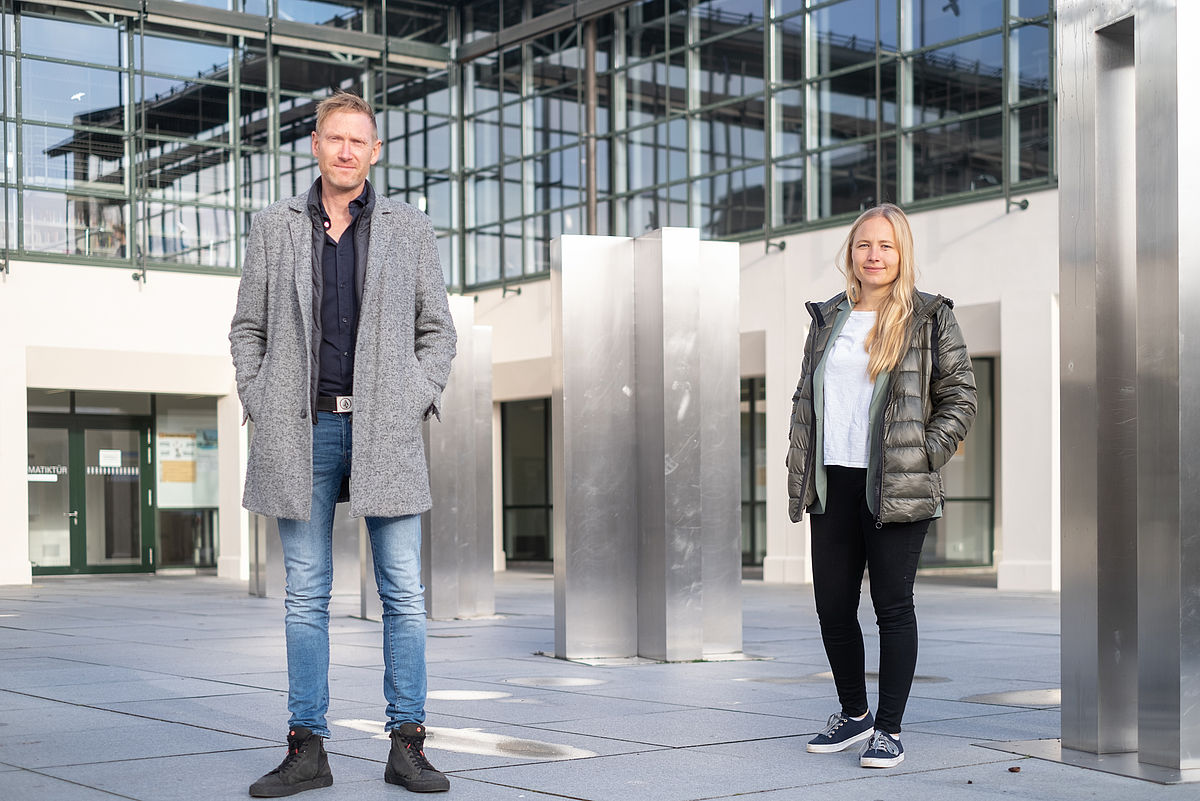The picture above shows a rice field near the city of Yogyakarta on the Indonesian island of Java. Photo: Nathalie Luck, University of Passau
Indonesia is a kind of living laboratory for agriculture in developing and newly industrialised countries. This was recognised by an interdisciplinary team of researchers from the University of Passau led by the development economist Professor Michael Grimm and the agricultural sociologist Professor Martina Padmanabhan. Since 2017, this team has been working with researchers from Indonesia in the IndORGANIC project, which is funded by the German Federal Ministry of Education and Research, to investigate whether and how organic farming can be widely promoted in one of the largest predominantly agricultural national economies.
Field study on the long-term conversion to organic farming
One finding is that training interventions with local partners have an impact: Nathalie Luck and Michael Grimm have demonstrated, with the help of a field experiment, that 15 % more farms used organic fertilisers in the villages were training was offered than in the other villages. But do these farms retain the organic practices and do they convert completely to organic farming in the longer term? If so, how do the productivity and the income situation develop? Luck and Grimm will explore these questions in another DFG-funded research project. The project builds upon the field study with 1200 smallholders on the Indonesian island of Java that was part of Luck’s doctorate. The DFG now funds her post-doctoral position
Protection of the environment and the reduction of poverty are not a contradiction.
Professor Michael Grimm and Nathalie Luck
Nathalie Luck can rely on a very good local network and speaks Bahasa Indonesian. “I was able to talk to a lot of smallholders, and thus gained detailed insights into their concerns and living conditions,” says Luck. Professor Grimm, who holds the Chair of Development Economics at the University of Passau, emphasises: “This knowledge and a familiarity with the language and culture are a prerequisite for the success of research projects in the predominantly rural region.”
Under the keyword “Green Revolution”, the traditional agriculture of the world’s largest island state was industrialised in the 1960s in order to increase yields, avoid a catastrophic famine and become internationally independent. Similar reforms were carried out in many other South and South East Asian countries. The intensive use of environmentally harmful fertilisers has had a serious impact in the meantime and is having a negative effect on the yields. It is estimated that 107 million hectares of land in Indonesia are over-acidified; the island of Java, where the Passau team’s research region is located, is particularly affected.
Rice field and farm building in Tasikmalaya, West Java, Indonesia. Photo: Nathalie Luck, University of Passau
Pilot study with digital soil tests
This is also where the second DBU-funded research project is to take place, a large-scale field experiment with digital soil tests. Professor Grimm and Nathalie Luck would like to combine sustainable growing methods with inexpensive digital soil tests in order to preserve the productivity of the farms. “Protection of the environment and the reduction of poverty are not a contradiction,” the development economist is convinced. “Our goal is to investigate, within the framework of a pilot study, whether such soil tests can help smallholders to manage their fertilisation intelligently. This would make a significant contribution to the improvement of the soil, to the prevention of erosion and to the protection of the groundwater.” The researchers are conducting the tests right on the spot with the farmers and combining them with training sessions in growing methods. This approach will be more cost-effective and quicker than sending soil samples to the laboratory, so the researchers’ hypothesis.
For the experiment, the team from Passau is extending its research region by around 1200 farmers from 60 additional villages. It is hoping that this will bring reliable results for the effectiveness of the technology under real-world conditions. To this end, the researchers are relying on local partners. These partners provide technology and logistics, train the participating farmers in their use and engage with the team from Passau in the research activities. “Our approach can be repeated in other newly industrialised and developing countries,” says development economist Professor Grimm.
The Passau researchers led by Professor Grimm have been able to raise funds amounting to more than € 500,000 for the two projects for a period of two years. The German Research Foundation (DFG) is funding the “Organic Farming” field study. The German Federal Environmental Foundation (DBU) is providing funds for the large-scale pilot study with soil tests. The DBU will in addition fund a PhD position which will be filled 1 January 2022 by Udit Sawhney who recently earned is master’s degree at the University of Tübingen.
Professor Michael Grimm
What are the measures that enable developing countries to participate in global market processes?
What are the measures that enable developing countries to participate in global market processes?
Professor Michael Grimm has held the Chair of Development Economics of the University of Passau since 2012. He is the Director of the Passau International Centre for Advanced Interdisciplinary Studies (PICAIS) and one of the Principal Investigators of the DFG Research Training Group 2720 "Digital Platform Ecosystems (DPE)". Prior to this, he held the posts of Professor of Applied Development Economics at Erasmus University Rotterdam, Visiting Professor at Paris School of Economics and Advisor for the World Bank in Washington, D.C. (United States).




